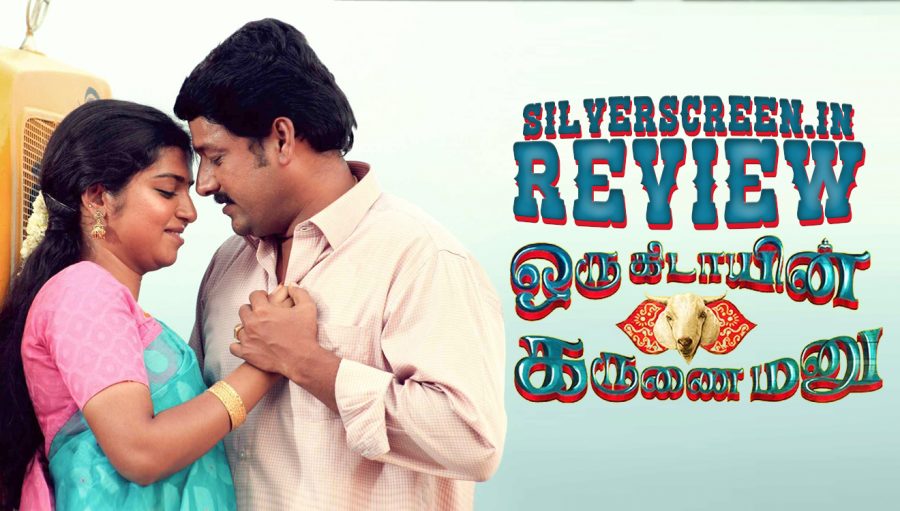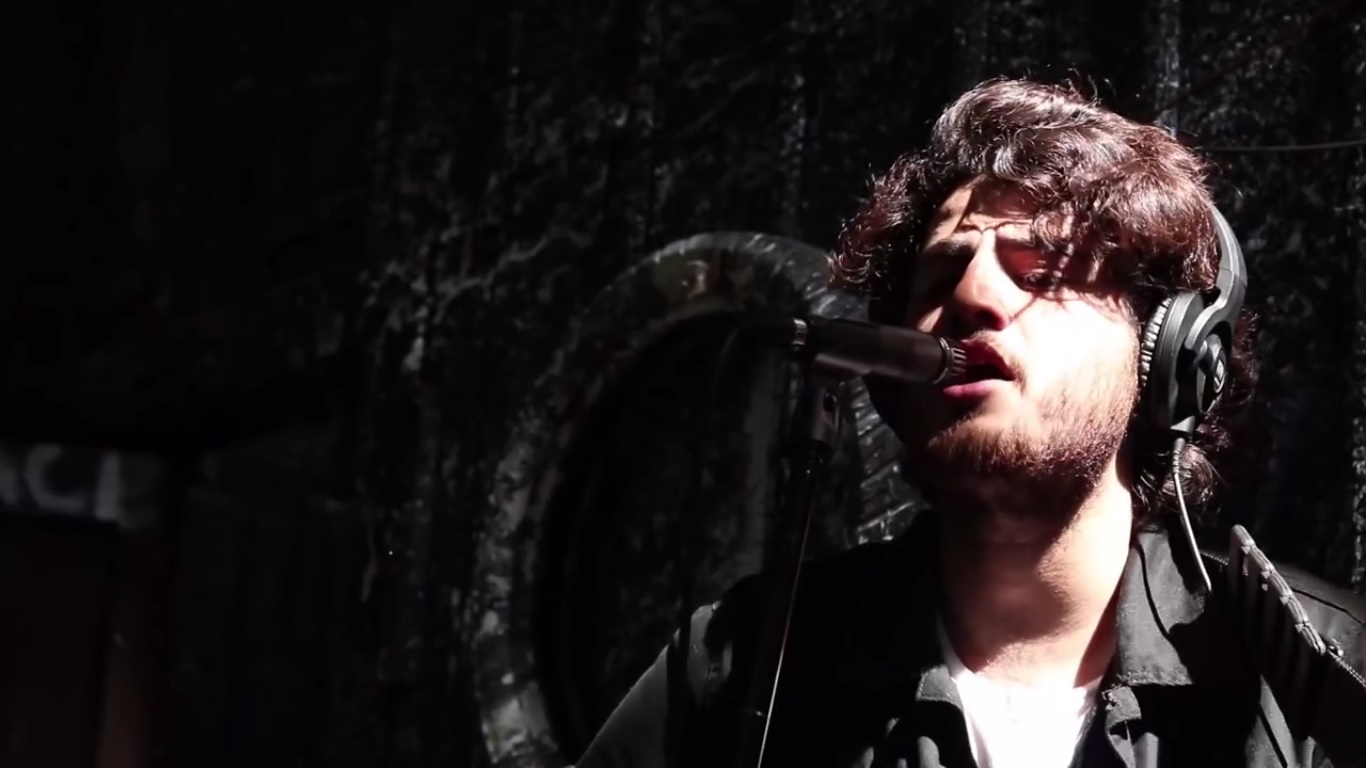Director Suresh Sangaiah used to be an assistant to M Manikandan, and it shows. His debut feature, Oru Kidayin Karunai Manu (A Goat’s Mercy Petition), has an ensemble cast and pitch-perfect writing, the way Manikandan’s Kaaka Muttai and Aandavan Kattalai did.
In one of the most organic scripts in recent times, events flow in such fluid ways that you’d think we were actually watching raw footage from a GoPro camera through the eyes of a goat.
The first scene is filmed through his eyes as villagers lead him to the butcher who will deal the sacrificial blow the following day at the temple. The opening credits consist of temples, idols, and the associated paraphernalia of a small town. There’s also a man lamenting about having been invited to sing for a travesty, and singing about it all the same.
And what a travesty it is! Ramamurthy (Vidharth) is newly married and his family – a loose word to describe everyone in the village – is preparing for a pilgrimage, a big part of which includes sacrificing the goat, who has been fattened up for slaughter by his mother.
Sangaiah is economical to the core and above all, a visual filmmaker (even as his film is full of witty camaraderie and brilliant character play-offs). The way he establishes the chemistry between Ramamurthy and Seetha (Raveena Ravi) seems innocuous at first. He has seen no action since their wedding night and when he is expectant, she sits down to unwrap the gifts. When he gives in and begins to take an interest, he sees that one of the gifts is a frame of Radhakrishna, an ironic present for Ram and Seetha.
That this family of knowns and unknowns are welcoming and gentle with the new family member is established in a montage that lasts less than a minute. Someone offers her coffee, someone tea, another offers Bournvita, and another offers sharbat.
The goat observes it all from its vantage point. As do we from ours. Sangaiah makes us buy into the good nature of all these people before he jolts us, reminding us of the human frailties that inevitably emerge when pushed.
Ramamurthy’s channelling of Krishna, his compulsion to impress Seetha at all costs, becomes a major turning point.
*****
At every opportunity, Sangaiah reinforces the fact that wordless, inarticulate forces are always watching. It’s not just the goat that is a silent observer. Animals bookend his frames at every instance. He shows buffaloes being transported in lorries that pass Ramamurthy and gang’s (and the goat’s) lorry, going to the temple. He shows cattle grazing in an area just before their journey comes to a stop. There are roosters and chickens and rabbit hunters. He shows birds and butterflies flying away.
For a few seconds, he focuses on a nest inside the district court, as if to hint at the passage of time since the events of those fateful two days. What’s more, there is even roadkill, though of an unexpected kind.
Sangiah has only one thing in mind when he unites all these living organisms – empathy. Or the lack of it. The people involved in the fracas try to help themselves out of a tricky situation. A lawyer (a relative of Ramamurthy) comes along, supposedly to help them, but we slowly begin to see his real motives.
And Ramamurthy’s transformation over the course of 24 hours is palpable.
*****
Not since Thithi has Indian cinema seen such a potent ensemble cast that is funny, relatable, and performs wonderfully. Like Raam Reddy’s excellent Kannada film, the characters of Sangaiah’s film can be oddballs with different motivations united for a single purpose (here too, as in Reddy’s film, there is a character who is a part of the gang only for the meat).
And like Thithi, death is a living entity that haunts Oru Kidayin Karunai Manu, giving it that flavour of black comedy. A death must be suppressed while the goat observes, even as it knows its own death is imminent.
Sangaiah uses mirrors in interesting ways. Moonlight falls on these characters through the night, even as chaos begins to control the proceedings.
The moonlight, the tired and distrustful villagers, and the goat – it’s all reminiscent of another film, Suseenthiran’s Azhagarsamiyin Kuthirai. That film, too, was about using an animal to tell the story of different characters who are pushed to their limits, even as extreme conditions expose their vulnerabilities.
Another similarity is R Raghuram’s background score, which uses blues and western cues to underline melancholia. Raghuram is surely a fan of Ilaiyaraaja (not that any self-respecting music director wouldn’t be), and the score of Azhagarsamiyin Kuthirai is legendary.
*****
Recommended
It’s like one of Tamil cinema’s best filmmaking schools is run by M Manikandan. Manikandan himself hasn’t made a bad film yet, and has given us two of the finest films from the last five years. His assistant Anucharan made Kirumi, another underrated gem. Anucharan also had writing credits in Manikandan’s Aandavan Kattalai, arguably 2016’s best Tamil film.
Today we have another graduate from the Manikandan school. Suresh Sangaiah’s Oru Kidayin Karunai Manu, barring a few minutes of grandstanding, is a Tamil film-of-the-year contender, giving stiff competition to Lokesh Kanagaraj’s Maanagaram.
*****
The Oru Kidayin Karunai Manu review is a Silverscreen original article. It was not paid for or commissioned by anyone associated with the movie. Silverscreen.in and its writers do not have any commercial relationship with movies that are reviewed on the site.



